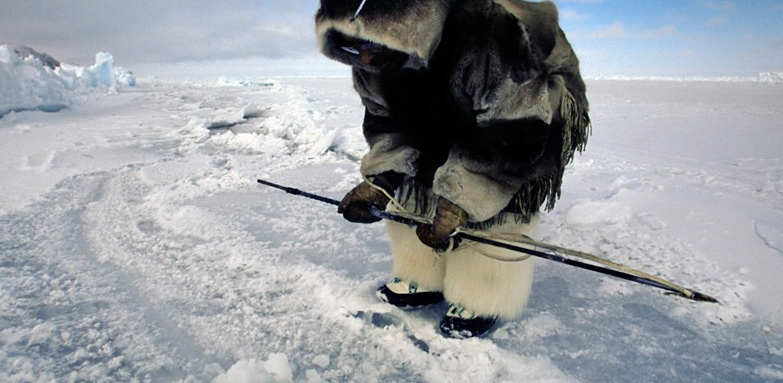In popular and scientific literature it is written that the Eskimos have dozens or even hundreds of words to refer to snow. Let's check if this is true.
For more than a century, in a huge number of scientific and popular books, and now on tens of thousands of Internet sites, you can find information that the Eskimo languages have many words for snow. However, information varies regarding exactly how much. There are estimates ranging from 4 to 500. In the Russian-speaking context, it seems that two hundred is most often spoken of.
It is argued that there is no general concept for snow in the Eskimo language. Here is what the famous American linguist Benjamin Whorf wrote about this in 1940: “We have the same word for falling snow, snow lying on the ground, compacted snow like ice, sticky snow, snow carried by the wind. For an Eskimo, the existence of such a comprehensive word is simply unthinkable. He would say that falling snow is sticky, etc. - the concepts are different both in terms of use and in terms of perception. He uses different words for them and for other types of snow.”

Many modern scientists agree that this is a myth, and the linguist Geoffrey Pullum even called it "the great Eskimo dictionary hoax." Although he did not appear out of nowhere. This story was very convenient as an illustration of the idea, innovative for the first half of the 20th century, that there are no “primitive languages”, and that environment and cultural characteristics influence vocabulary.
This example was first used in 1911 by the American anthropologist Franz Boas, who lived for almost a year among the Eskimos on Baffin Island and compiled a dictionary their language. He wrotethat the Eskimos have four different words for snow. But the idea was made popular 30 years later by the above-mentioned Whorf, who gave five examples of such words, all of which differed from Boas’s examples.
Later, other authors overestimated the number of snow words. So, in 1978 their number in publications reached 50, and on February 9, 1984 in the newspaper The New York Times hundreds have already been mentioned. Moreover, with a clearly erroneous reference to the same Whorf. Nowadays, in collections of “interesting facts” they write about 200, 400 and even 500 words.
Part of the problem is whether to consider words with the same root to be different or the same word. “The Eskimo language is polysynthetic, which means that it condenses into one very long word a lot of information that in Swedish or English would become a whole sentence,” writes Swedish linguist Mikael Parkvall. “We can partly do this in Swedish: we say lastbilschaufför in one word (‘truck driver’ - Translator’s note), whereas the British say lorry driver in two words.” And the root for “snow” may be the same for many of these words.
But something else is also important. People have collected similar ones for comparison lists in English and in the languages of other peoples who know first-hand about snow. And everywhere we get at least several dozen individual words and phrases, including those with different roots. In order not to go far, let's let's take only the Russian language and only the most commonly used options for snow in different types: blizzard, blizzard, frost, hoarfrost, avalanche, blizzard, drifting snow, powder, blizzard, snow, snowdrift. There are already more than ten pieces.
Research into “snow words” in different languages continues. Someone won't let up, after all finds modern Canadian Eskimos have about 50 (excluding polysynthetic ones) and claims that the British are far from them, others count 180 among the Sami, third - as many as 421 for the Scots. All of the above apparently does not allow us to speak unambiguously about some kind of “snowy uniqueness” of the Eskimo language. However, whether to consider history as a whole a myth or not, decide for yourself.
Half-truth
Read on topic:
- https://en.wikipedia.org/wiki/Eskimo_words_for_snow
- https://inosmi.ru/science/20180107/241094722.html
- http://coollingua.blogspot.com/2011/01/500.html
If you find a spelling or grammatical error, please let us know by highlighting the error text and clicking Ctrl+Enter.







